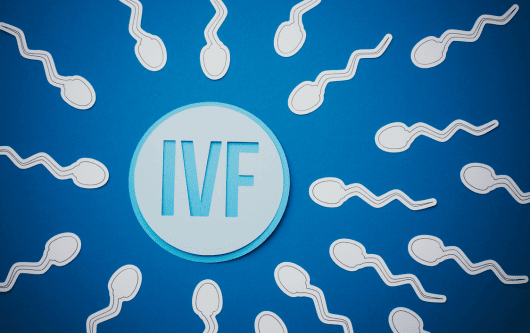Freezing Embryos Before Marriage: It’s A New Trend, But What If The Relationship Ends?

In today’s modern world, instead of saying “I do” to marriage, many dating couples are first saying yes to IVF. As highlighted in a recent piece in The Cut, the newest trend among unmarried couples is making frozen embryos as a sign of their commitment to a future life together.
As the article’s title, “The Exes Who Froze Embryos and Regret It,” gives away, however, the one big catch to freezing embryos with a dating partner is figuring out what happens to frozen embryos should the couple’s relationship reach the end of the road before they can be used.
The big problem: What if one former partner wishes to still use the frozen embryos in the future over the other’s objection?
The stories women shared in the piece point to the gray legal area that still exists in figuring out answers to this question.
Mallory, one of the women profiled in the article, made frozen embryos with her ex before their relationship ultimately ended. In the aftermath of their split, Mallory’s ex started to stalk her, using the fate of the frozen embryos (the ex was pushing to take ownership of them himself) as a way to stay in contact, despite a restraining order. Her legal bills for getting the courts to agree to keep the embryos out of her ex’s hands totaled more than $100,000.
For another woman profiled in the article, obtaining her frozen embryos after her split turned into a legal fight because the IVF clinic recognized the frozen embryos as belonging to both the woman and her ex, despite the eggs being fertilized by donor sperm due to the ex’s infertility (and unusable sperm).
Also cited in the article was celebrity Jennifer Vergara’s high-profile legal battle with her ex when he requested the use of embryos they had frozen years before. (His plan was to have children via surrogate.) Vergara objected to his use of the embryos. Their case ended up in court where a judge ultimately sided with Vergara, saying that if one partner disagrees with use, the other former partner can not move forward with plans.
What does New Jersey law have to say on this subject?
New Jersey is one of only a handful of states that has clear case law on what happens to embryos following a divorce or relationship breakdown, thanks to the New Jersey Supreme Court case of JB v. MB. In the case, a couple who pursued IVF (in vitro fertilization) due to infertility ended up divorcing and a dispute arose over the fate of their frozen embryos. The contract the couple had signed with the fertility clinic prior to starting treatments stated that all control and ownership of any embryos would be given over to the IVF program in the event there was a divorce, or unless the divorce judge orders who would take possession of the embryos.
When one of the former spouses wanted to use the embryos post-divorce, over objections from the other spouse and from the IVF clinic, the dispute ended up in court.
Ultimately, the New Jersey Supreme Court made two key rulings:
1. IVF agreements like the one couple signed giving the fertility clinic ownership of frozen embryos violate public policy and will generally not be found enforceable; and
2. In cases where former spouses/partners dispute use of frozen embryos, the party choosing not to become a biological parent generally should prevail.
Still, despite New Jersey having more certainty in what can happen to frozen embryos, any couple — married or not — entering into the use of assistive reproductive technology should take steps to bring legal clarity to their plans and what happens in the event of a marital or relationship demise. As part of the process, couples really should come to their own agreement about what they want to happen in case they divorce or splitting up, and get it in writing.
Learn More:
Divorce Issues: What Happens to Frozen Embryos?
How to Hire a Gestational Surrogate: A Step-by-Step Guide
Considering freezing your embryos to ensure pregnancy and children later on in life? It is in the best interests of you and your partner to sit down with a lawyer to discuss your rights before taking this major step. We can help. To schedule a consultation with a family law attorney, please call us today at 888-888-0919, or please click the button below.

